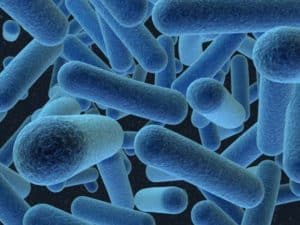The liver is the rock star of our detoxification system. This organ is positioned on the right side of the body underneath the ribs and is the shape of a semi-deflated football. Second only to the skin, the liver is the larges single organ in the body and weighs approximately 1.4 to 2 kilograms (3 to 4 pounds) in the average adult. At it’s widest point, it is 21 to 22.5 cm across and 15 to 17 cm at its greatest vertical height, and 10 to 12.5 cm from front to back. In other words, it’s LARGE and demands a whopping 25% of the blood pumped with each heartbeat.
The liver actually has over 500+ crucial functions to sustain life. From digestion to circulation, the liver neutralizes toxins in the in the blood from the air we breathe, food and drink we consume, medications, and topical creams applied to the skin. The liver is also responsible for producing bile and clotting factors, storage of essential vitamins, minerals and glucose until they are needed. Without the liver, the body cannot digest food, heal wounds or survive.
Although the liver is quite resilient, like anything else, it has its limitations…and the capacity to reach its “tipping point,” e.g. the point at which its function is no longer optimal if not complete organ failure. A few signs the liver is trying to tell you something include:
- Abdominal pain, weight loss, or fatigue: There is a condition referred to as non-alcoholic fatty liver disease (NAFLD) in which fat builds up in the liver. High cholesterol levels and obesity increase the risk factors for NAFLD, which often has no symptoms or obvious problems; however, it increases the chances of developing type 2 diabetes and heart disease.
- Clay-colored feces and flu-like symptoms: These symptoms can be due to hepatitis A, B, or C – infections that cause inflammation in the liver. Hepatitis A is spread by contaminated blood, Hepatitis B or C can be sexually transmitted.
- Yellow eyes and skin: Bilirubin is a by-product of the liver’s filtering system and when it fails to produce bilirubin the yellow substance can build up in the body.
Things You Can Do To Support Your Liver
- B vitamins are essential for healthy cell functions. Working synergistically, the B vitamins facilitate energy release (work of the cells) and manufacture new cells. The B vitamins include:
- B1 (thiamine)
- B2 (riboflavin)
- B5 (pantothenic acid)
- B6 (pyridoxine)
- B12 (methylcobalamin)* – sublingual or subcutaneous injections for better absorption
- Folic acid*
*For those with the MTHFR Gene SNP, you must use methylated sources.
Caution: Vitamin B3 (niacin) should be avoided by people with liver conditions as it disrupts healthy methylation patterns.
- Choline helps reduce the amount of fat deposited in the liver.
- Acetyl-L-carnitine helps to maintain mitochondrial health (energy power house inside the cell).
- Antioxidants protect from damaging effects of free radicals produced from toxins in the environment.
- Vitamin C
- Vitamin E of D-alpha tocopheryl succinate and gamma tocophenol for broad-spectrum antioxidant protection.
- Almonds, olive oil and spinach are rich in Vitamin E.
- A research study by Vanderbilt University showed Vitamin E may support the immune system and the repair of DNA.
- CoQ10 protects the mitochondria from oxidative damage and provides cellular energy (CoQ10 is what is robbed by statin drugs).
- N-acetyl-cysteine (NAC) enhances the production of glutathione and has protective benefits for the liver from toxins.
- Alpha-lipoic acid can dramatically increase glutathione levels inside the cells.
- Selenium (a trace mineral) has antioxidant protection in the liver. Zinc is often deficient in cirrhosis and acts as a chelator in removing copper from the system.
- S-adenosylmethionine (SAMe) is necessary to synthesize glutathione and has restored liver function from damage due to hepatitis C. Do not take SAMe on an empty stomach.
- Silymarin extract (from milk thistle) can raise glutathione levels and has shown multi-faceted protective benefits to the liver.
- Medicate with mindfulness – the liver has to process everything including medications whether it be prescription or over-the-counter drugs Acetaminophen has shown to be liver-toxic. Be sure to discuss with your physician the ramifications of medication to the liver.
- Don’t binge on alcohol or food for that matter…love your body and it will be kind to you.
Resources:
- Daly, M. (2012). Get to Know Your…Liver, Whole Living. New York: Body & Soul Omnimedia, Inc. [print].
- Life Extension Foundation: Disease Prevention and Treatment: Scientific Protocols that Integrate Mainstream and Alternative Medicine (2003), Hollywood, Florida: Life Extension Media.




